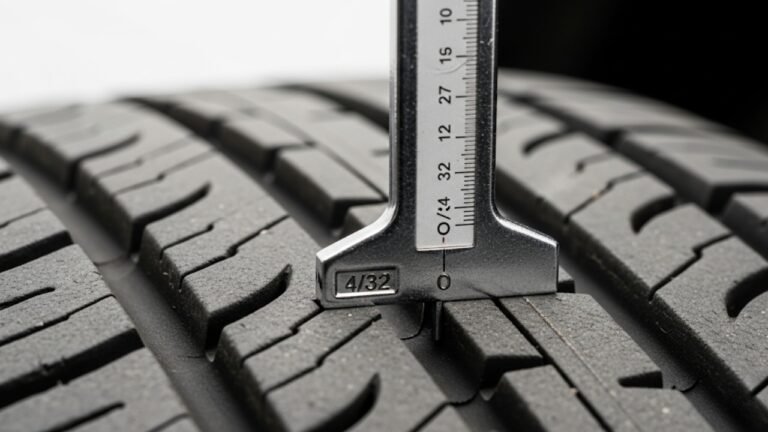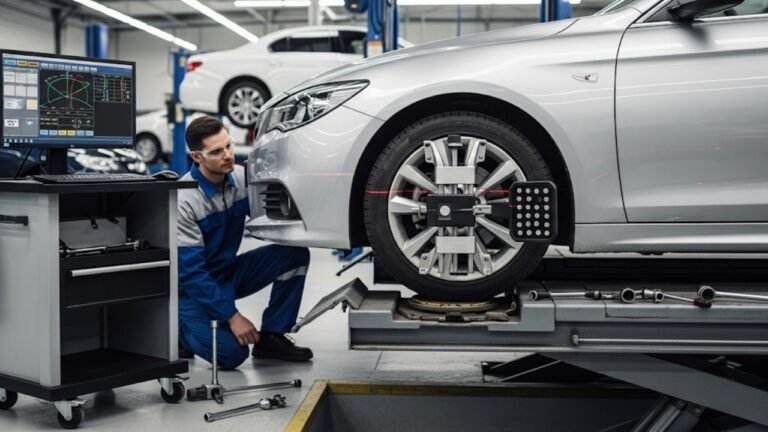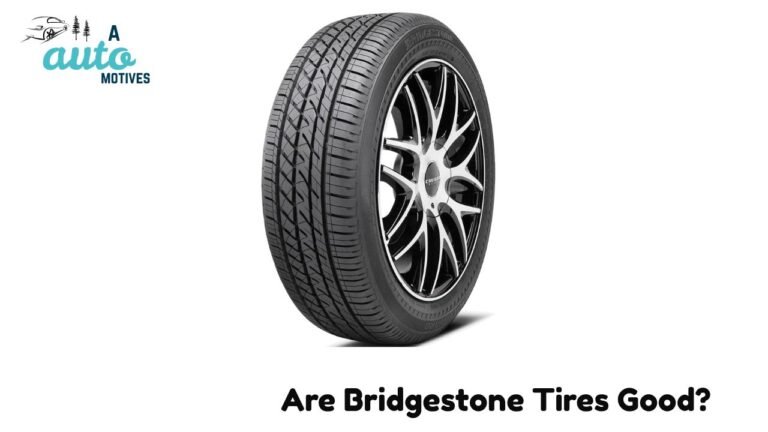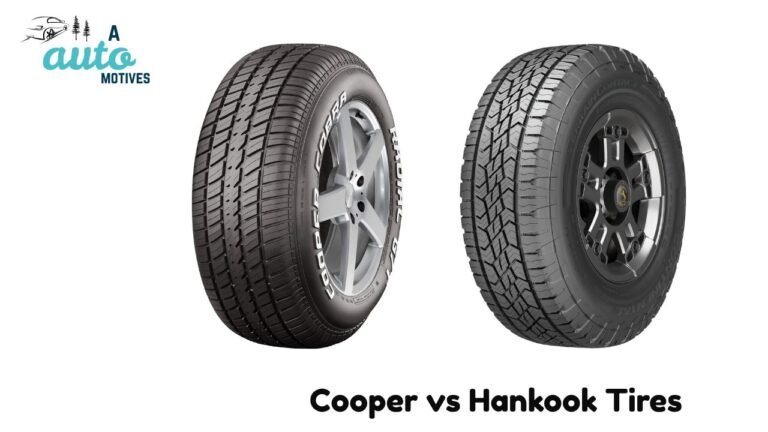A Deep Dive into Puncture-Proof Car Tires
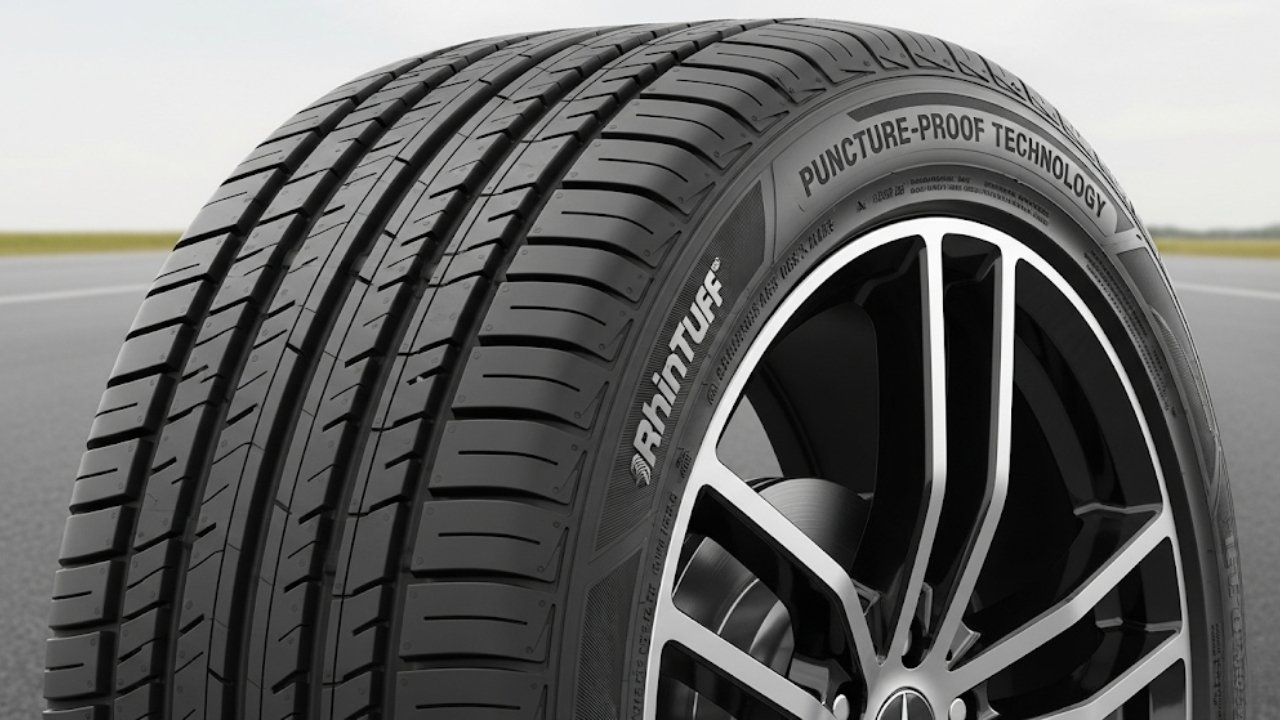
It was a sweltering summer afternoon in the middle of rural highway chaos when my car abruptly began to wobble. At first, I thought I had hit a pothole. But the thudding noise and the car pulling to one side said otherwise. Yup — I had a flat tire. No spare in the trunk. Just me, sweat, and regret. That was the day I first wished for puncture-proof car tires.
If you’ve ever had a flat at the worst possible time (and who hasn’t?), you know how frustrating — and scary — it can be. That one experience sparked my obsession with finding tires that could take a beating and keep going. And guess what? Puncture-proof tires are no longer science fiction.
In this guide, we’re going to roll deep into everything you need to know about them — how they work, their pros and cons, the different types, and whether they’re worth the investment.
What Are Puncture-Proof Car Tires?
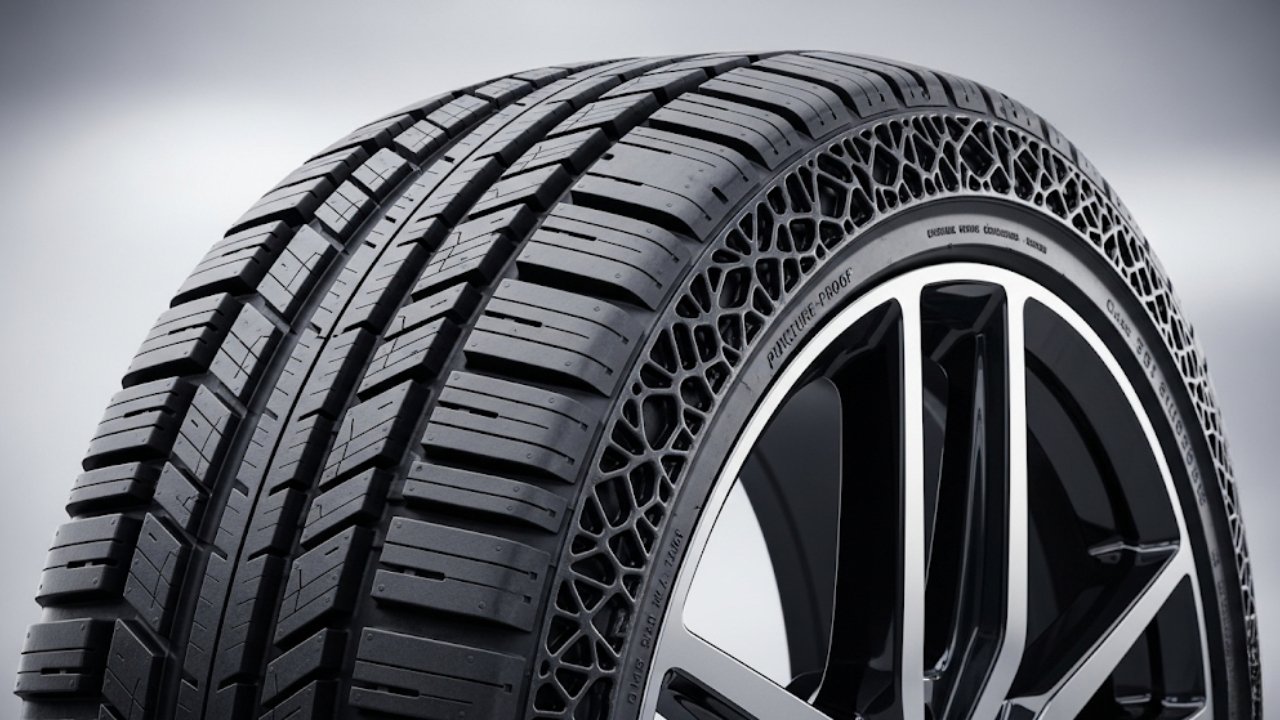
Puncture-proof car tires are specially designed tires that don’t go flat when something sharp, like a nail or piece of glass, tries to pierce them. While the term “puncture-proof” might sound like marketing fluff, many of these tires actually resist damage exceptionally well — some even let you drive safely after a puncture.
They’re different from regular tires because they’re built with unique materials and technology. Some are self-sealing. Some have tough layers. Others can run flat for miles.
Here’s a quick look at the types:
-
Self-sealing tires: Have a gooey layer inside that seals punctures automatically.
-
Run-flat tires: Keep their shape even with no air — you can drive up to 50 miles on them.
-
Airless tires: Have no air at all — just solid or honeycomb structures.
We’ll break each of these down later. But first — why do we even need them?
Why Are Regular Tires So Vulnerable?
It’s almost ironic, isn’t it? Tires are made to hit the road… but the very road they roll on is full of threats. Nails, screws, glass shards, and even sharp gravel can puncture a tire.
Traditional tires rely on air pressure to stay inflated. Once something punctures the rubber and lets that air out, the tire goes flat. And then — so does your mood.
The issue is simple: Rubber is flexible, which helps with grip and comfort, but it also makes it easier for sharp objects to poke through. And modern cars, being heavier and faster, put even more stress on the tires.
This is where puncture-proof car tires come in — to offer a layer of peace of mind.
Types of Puncture-Proof Car Tires: A Closer Look
There isn’t just one type of puncture-resistant technology. Let’s dive into the three main types and what makes each one unique.
1. Self-Sealing Tires
Imagine a Band-Aid that seals itself the moment you get a cut. That’s how these tires work.
Inside the tire is a special sealant layer. If something punctures the tire — say, a nail — the sealant rushes into the hole and plugs it instantly, stopping air from leaking out.
-
Pros:
-
Instant repair of minor punctures.
-
No special rims needed.
-
You usually don’t even notice a puncture happened.
-
-
Cons:
-
Doesn’t work well for sidewall damage.
-
Sealant can dry out over time.
-
2. Run-Flat Tires (RFT)
These are the superheroes of highway emergencies. Even if they lose all air, they stay rigid enough to drive on — usually up to 50 miles at reduced speed (around 50 mph).
-
Pros:
-
No need to pull over immediately.
-
Safer during blowouts or on highways.
-
Perfect for people who hate changing tires.
-
-
Cons:
-
Pricier than regular tires.
-
Ride comfort can be a bit stiffer.
-
Not every mechanic can patch them.
-
3. Airless Tires (Non-Pneumatic Tires)
The holy grail of puncture-proof car tires. These don’t have any air in them at all. Instead, they use solid rubber, or structures like honeycomb webs, to absorb shock.
-
Pros:
-
100% flat-proof.
-
No maintenance needed.
-
Environmentally friendly options available.
-
-
Cons:
-
Still in development for mass-market use.
-
Heavier and may affect fuel efficiency.
-
Ride can be noisy or bumpy.
-
Here’s a quick comparison table:
| Feature | Self-Sealing Tires | Run-Flat Tires | Airless Tires |
|---|---|---|---|
| Flat-Proof Level | Moderate | High | Extreme |
| Ride Comfort | Excellent | Good | Fair |
| Availability | High | Moderate | Low |
| Price Range | $$ | $$$ | $$$$ |
| Repairability | Easy | Difficult | Not needed |
How Do Puncture-Proof Tires Actually Work? (Simple Explanation)
Let’s keep it simple.
Think of a regular balloon and a tennis ball. A balloon pops easily if poked. But a tennis ball? You could press a tack into it, and it would bounce right back. That’s the idea behind puncture-proof car tires — they’re made to be more like tennis balls.
Each type has its own method:
-
Self-sealing tires use glue-like material that flows and hardens when pierced.
-
Run-flats have reinforced sidewalls that don’t collapse when air is gone.
-
Airless tires simply eliminate the weak point — the air itself.
These smart designs mean fewer roadside breakdowns, less stress, and more confidence behind the wheel.
Are Puncture-Proof Car Tires Worth It?
Now for the million-dollar question.
Let me be real with you — I was skeptical at first. Why spend more on tires? But after a few months of using puncture-proof car tires, I realized they’re not just about convenience. They’re about safety and freedom.
Here’s why I now recommend them to friends, especially those who:
-
Drive long distances or through construction zones.
-
Commute daily in city traffic with roadside hazards.
-
Have kids and can’t afford surprise emergencies.
-
Hate (or can’t) change a tire alone on the road.
And for those wondering if these tires pay off? Consider this:
-
The average cost of a tow due to a flat: $100–$250.
-
A new tire + labor: $150–$300.
-
Missing a meeting or picking up your kid? Priceless.
Yes, puncture-proof car tires cost more up front. But they can save you time, money, and stress down the road.
Top Brands That Make Puncture-Proof Car Tires
If you’re seriously considering upgrading your tires, the next logical question is: Who makes the best ones? Luckily, some of the most trusted names in the automotive world have taken puncture resistance to a whole new level.
1. Michelin
Michelin is a tire industry legend. Their Michelin Uptis (Unique Puncture-Proof Tire System) has made waves recently. It’s an airless tire, designed with a futuristic web-like structure that’s been tested rigorously.
-
Best for: Those who want zero puncture worries in the future.
-
Downside: Not widely available for consumers — yet.
2. Bridgestone
Their DriveGuard line is a fantastic example of run-flat technology done right. These tires maintain performance and offer a smooth ride — even with no air.
-
Best for: Everyday drivers and commuters.
-
Bonus: You can drive up to 50 miles after a puncture.
3. Continental
They’re known for their ContiSeal line — a top-tier self-sealing tire that uses a thick layer of viscous sealant.
-
Best for: Drivers who want a traditional feel but improved protection.
-
Cool fact: ContiSeal can seal 80% of tread punctures up to 5mm.
4. Hankook and Goodyear
These brands offer mid-tier run-flat and self-sealing options that balance quality and cost. They may not be as fancy as Michelin’s airless concept, but they get the job done with real-world reliability.
How Much Do Puncture-Proof Tires Cost?
Let’s talk numbers — because tires aren’t exactly pocket change.
Here’s a general breakdown for puncture-proof car tires (per tire):
| Type | Average Price (USD) |
|---|---|
| Self-Sealing Tires | $120–$250 |
| Run-Flat Tires | $150–$300 |
| Airless Tires (future) | $250–$500+ |
Pro Tip:
Some premium tires may come with warranties that cover road hazards, which adds extra value.
Now, compare that to the cost of:
-
Flat tire service: $75+
-
New tire (standard): $100+
-
Time lost: priceless
While puncture-proof tires cost more upfront, they could save you from those stressful breakdowns and last-minute expenses.
Installation and Maintenance: Is It Any Different?
You might wonder — do these high-tech tires need special care?
The answer depends on the type.
️ Self-Sealing Tires:
-
Fit on regular rims.
-
Check air pressure regularly, just like normal tires.
-
Keep an eye on the sealant’s shelf life (usually 5–7 years).
️ Run-Flat Tires:
-
Often need TPMS (Tire Pressure Monitoring System) for alerts.
-
Some require special rims (check your car’s manual).
-
Harder to repair — replacement might be needed for large punctures.
️ Airless Tires:
-
No air = no pressure checks!
-
Low maintenance.
-
Not available for all cars (yet).
So while installation might differ slightly, most mechanics can handle self-sealing and run-flat tires with ease. Airless might need a bit more time to become mainstream.
Environmental Impact: Are They Eco-Friendly?
It’s not just about convenience. It’s also about the planet.
Flat tires usually end up in landfills, especially if they’re damaged beyond repair. But puncture-proof car tires are helping reduce that waste in a few ways:
-
Longer lifespan = fewer tire replacements.
-
Reduced roadside debris = cleaner streets.
-
Airless options can be made from recycled materials (Michelin Uptis is working on this!).
While the manufacturing process still has an environmental footprint, the net benefit of fewer blowouts, fewer disposals, and less maintenance is a win.
Real Driver Stories: Why People Are Switching to Puncture-Proof Tires
Ayesha from Sydney:
“I used to dread late-night drives after work. One flat on the freeway and I was done. Switched to Bridgestone run-flats — haven’t looked back since. I even got a slow puncture once and didn’t notice until I reached home. Lifesaver.”
Rahul from Mumbai:
“My commute takes me through roads under constant construction. I lost two tires in one month! Now I have ContiSeal. Last week I picked up a screw — and the tire sealed itself. No drama. Just peace.”
Derek from Florida:
“I love road trips. But one time, I had a blowout in the middle of the Everglades. Never again. I invested in Michelin’s run-flats — pricey but so worth it. I’d rather spend money on tires than get stranded with gators again.”
FAQs About Puncture-Proof Car Tires
1. Are puncture-proof tires really 100% safe from flats?
Not completely. They’re highly resistant, not invincible. However, they drastically reduce the chances of sudden flats, which makes them a much safer option.
2. Can I use puncture-proof car tires on any vehicle?
Mostly yes — especially self-sealing and run-flat tires. Airless tires are still being tested for broader use. Always check compatibility with your car manufacturer.
3. Are they noisy or uncomfortable to drive with?
Self-sealing tires feel just like regular ones. Run-flats can feel slightly firmer. Airless tires may cause more noise — but designs are improving fast.
4. Do they need more maintenance?
Not really. In fact, some require less (no air pressure issues!). Still, check tread and alignment regularly, like with any tire.
5. Can they be repaired like normal tires?
Self-sealing ones often don’t need repairs for small punctures. Run-flats can be tricky to repair and might need full replacement.
6. Are puncture-proof car tires legal everywhere?
Yes — as long as they meet road safety standards. Some regions have regulations about run-flats or airless designs, so it’s smart to double-check locally.
7. Are they good in bad weather?
Absolutely. Many come with all-season or winter options that perform great in rain, snow, and heat.
8. What’s the best brand for daily commuters?
Go for Bridgestone DriveGuard or Continental ContiSeal — they’re designed for everyday reliability without sacrificing comfort.
Final Thoughts: Should You Make the Switch?
Look — I get it. The road is full of surprises. A stray nail or broken bottle can mess up your entire day. But when you’ve got puncture-proof car tires, it’s like driving with an invisible shield. It’s peace of mind, independence, and safety wrapped in rubber.
Yes, they cost more. Yes, they require a bit of homework. But if you’re someone who values reliability, convenience, and safety, they’re 100% worth considering.
And hey — wouldn’t it be nice to hit the road without checking if you packed a spare?
So next time you’re upgrading your tires, don’t just look for good tread. Ask yourself: “Do I want to worry less about flats — for good?”
Because with puncture-proof car tires, the answer might just be a confident yes.

